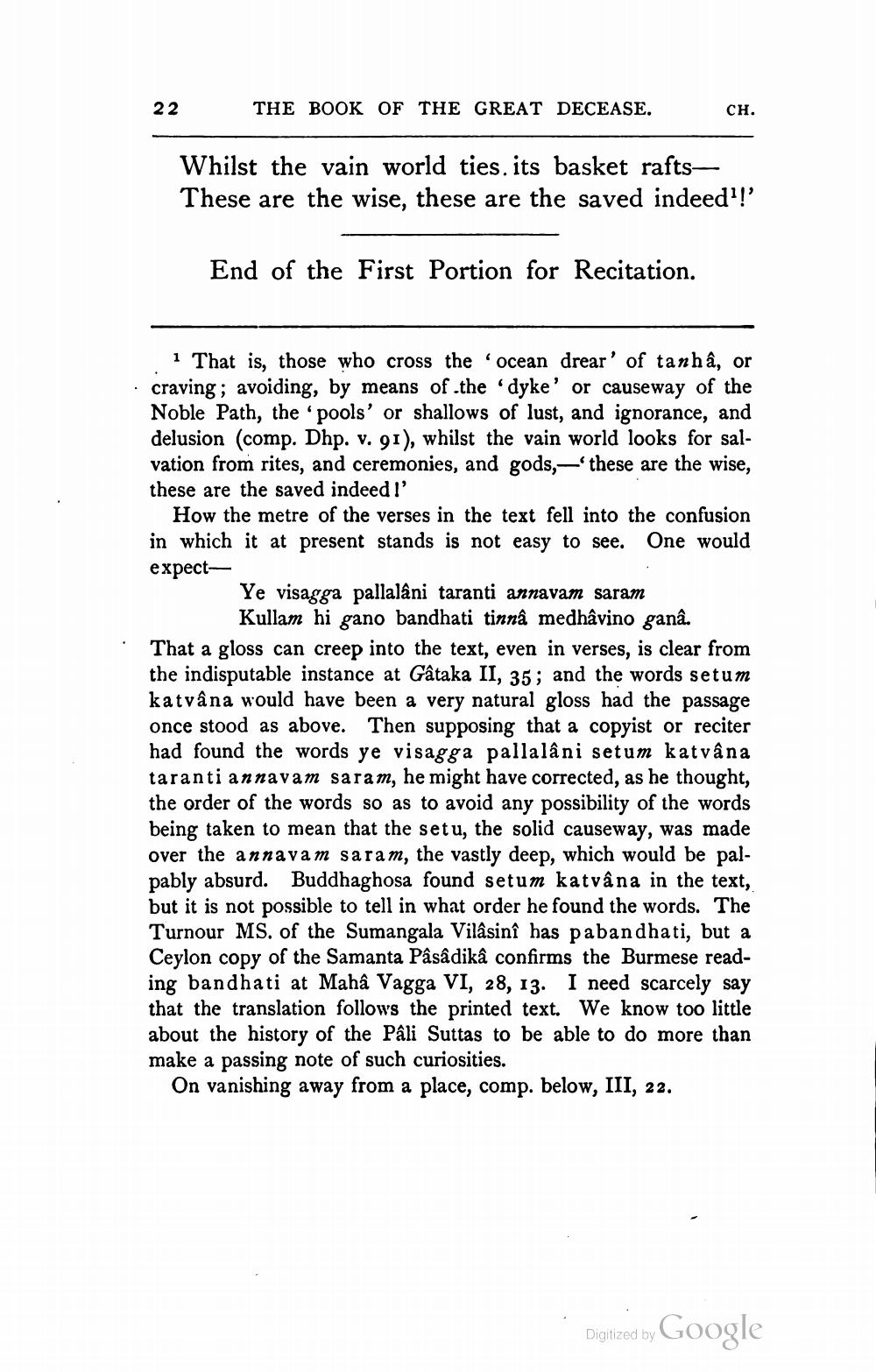________________
22
THE BOOK OF THE GREAT DECEASE.
CH.
Whilst the vain world ties. its basket raftsThese are the wise, these are the saved indeed!!'
End of the First Portion for Recitation.
1 That is, those who cross the ocean drear' of tanh â, or craving; avoiding, by means of the 'dyke' or causeway of the Noble Path, the pools' or shallows of lust, and ignorance, and delusion (comp. Dhp. v. 91), whilst the vain world looks for salvation from rites, and ceremonies, and gods, these are the wise, these are the saved indeed!'
How the metre of the verses in the text fell into the confusion in which it at present stands is not easy to see. One would expect
Ye visagga pallalani taranti annavam saram
Kullam hi gano bandhati tinna medhâvino ganâ. That a gloss can creep into the text, even in verses, is clear from the indisputable instance at Gâtaka II, 35; and the words setum katvâna would have been a very natural gloss had the passage once stood as above. Then supposing that a copyist or reciter had found the words ye visagga pallalâni setum katvana taranti annavam saram, he might have corrected, as he thought, the order of the words so as to avoid any possibility of the words being taken to mean that the setu, the solid causeway, was made over the annavam saram, the vastly deep, which would be palpably absurd. Buddhaghosa found setum katvâna in the text, but it is not possible to tell in what order he found the words. The Turnour MS. of the Sumangala Vilâsinî has pabandhati, but a Ceylon copy of the Samanta Pâsâdikâ confirms the Burmese reading bandhati at Maha Vagga VI, 28, 13. I need scarcely say that the translation follows the printed text. We know too little about the history of the Pâli Suttas to be able to do more than make a passing note of such curiosities.
On vanishing away from a place, comp. below, III, 22.
Digitized by Google
Digitized by




